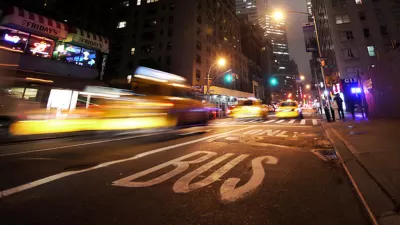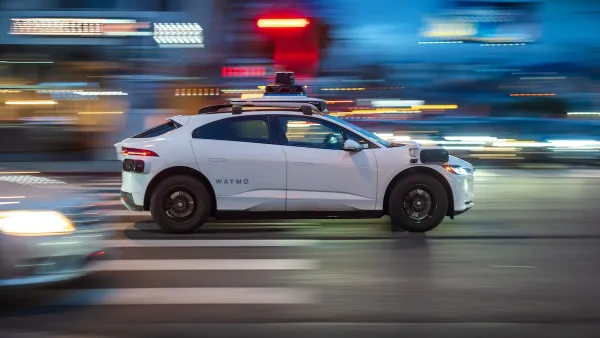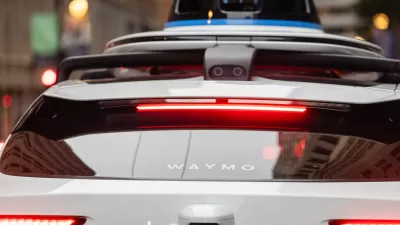Rebecca Solnit writes a pointed criticism of the wave of optimism attached to the self-driving car. Her preference: public transit.

Renowned author Rebecca Solnit begins an editorial for The Guardian by describing a utopian scene with a surprising (to some) setting:
I am rich beyond Google’s wildest driverless-car dreams; I own a fleet of swift and reliable driverless cars that take me where I’m going while I read or stare out the window or watch beautifully limber kids turf dancing in the aisles for my entertainment. I have been riding these liberating transportation marvels for many decades; I have seen the future; it is all of us in these driverless cars we already own together.
Solnit doesn't mean driverless cars in the way Google or Uber does, but she does mean one human driver "per 50 or 500 people"—otherwise known as buses, streetcars, trains, and ferries. According to Solnit, public transit means many city dwellers can afford to skip cars altogether.
Yet with the possibilities offered by transit, Solnit is dismayed by the growing attention paid to self-driving cars.
Here in the shadow of Silicon Valley, it is dismal to see the obsession with privatization when the shifts we need to respond to climate change should include enhanced public transit, both in what fuels those fleets and how well they serve us. Enhanced public transit and reduced private transit.
The way Solnit sees it, self-driving cars are a mechanism by which humans can perpetuate the destructive consequences of the automobile age, while shirking the potential benefits of public transit.
FULL STORY: We don't need self-driving cars – we need to ditch our vehicles entirely

Maui's Vacation Rental Debate Turns Ugly
Verbal attacks, misinformation campaigns and fistfights plague a high-stakes debate to convert thousands of vacation rentals into long-term housing.

Planetizen Federal Action Tracker
A weekly monitor of how Trump’s orders and actions are impacting planners and planning in America.

San Francisco Suspends Traffic Calming Amidst Record Deaths
Citing “a challenging fiscal landscape,” the city will cease the program on the heels of 42 traffic deaths, including 24 pedestrians.

Defunct Pittsburgh Power Plant to Become Residential Tower
A decommissioned steam heat plant will be redeveloped into almost 100 affordable housing units.

Trump Prompts Restructuring of Transportation Research Board in “Unprecedented Overreach”
The TRB has eliminated more than half of its committees including those focused on climate, equity, and cities.

Amtrak Rolls Out New Orleans to Alabama “Mardi Gras” Train
The new service will operate morning and evening departures between Mobile and New Orleans.
Urban Design for Planners 1: Software Tools
This six-course series explores essential urban design concepts using open source software and equips planners with the tools they need to participate fully in the urban design process.
Planning for Universal Design
Learn the tools for implementing Universal Design in planning regulations.
Heyer Gruel & Associates PA
JM Goldson LLC
Custer County Colorado
City of Camden Redevelopment Agency
City of Astoria
Transportation Research & Education Center (TREC) at Portland State University
Jefferson Parish Government
Camden Redevelopment Agency
City of Claremont





























